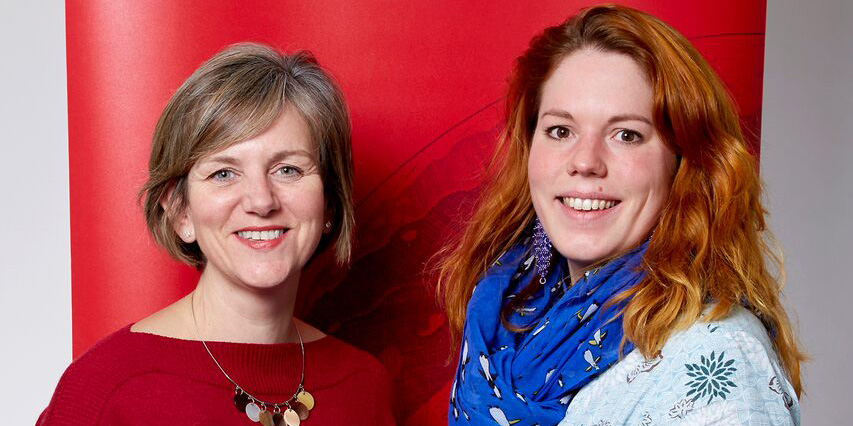
December 7, 2015, by Emma Thorne
Nottingham academic experiences life at Westminster
Research Fellow in Neuroimaging at the University of Nottingham, Rebecca Dewey, recently returned from a week at the House of Commons in Westminster. The visit in November was part of a unique pairing scheme run by the Royal Society – the UK’s national academy of science – with support from the Government Office for Science.
During Rebecca’s visit, she attended seminars and panel discussions about how evidence is used in policy making and took part in a mock Select Committee to gain evidence surrounding the fictional debate about whether to establish a government Office of Scientific Responsibility. Rebecca also spent two days shadowing Lilian Greenwood, Labour MP for Nottingham South and Shadow Secretary of State for Transport.
The Royal Society Pairing Scheme, which is in its 15th year, provides research scientists with a behind-the-scenes insight into how policy is formed and how research can be used to make evidence-based decisions. It also gives parliamentarians and civil servants the opportunity to investigate the science behind their decision-making processes and improves their access to scientific evidence. The over-arching aim of the scheme is to build bridges between parliamentarians and some of the best scientists in the UK.
The week began with a Sunday evening dinner in a local restaurant, and researchers were put straight to work in selecting 15 committee members to take part in the mock Select Committee, and subsequently appointing a Chair from the committee.
On the Monday, the researchers received their orientation around the Houses of Parliament, including a tour of the buildings and a seminar from Alasdair MacKenzie of the Houses of Parliament Outreach Office. Following that, the scientists made a case study into the recent case of mitochondrial donation which reached parliament. The day culminated with a reception in parliament where Jo Johnson MP, Minister for Science and Universities spoke about the value of UK research and the important role of scientific advice in parliament. Nicola Blackwood MP, Chair of the Science and Technology Select Committee also spoke about the Committee’s plans to investigate the evidence underpinning Government policies.
On Tuesday, Rebecca spent the day shadowing Lilian Greenwood MP on her busy schedule. The day started with observing Ms Greenwood give a speech at the UK Aviation Conference, followed by a number of meetings, including a meeting of the Shadow Transport Committee.
Rebecca spent Wednesday in the Commons Chamber, witnessing the proceedings of the day, including Questions to the Prime Minister and the reading of the Comprehensive Spending Review and Autumn Statement. This was followed by the mock select committee, where the committee interrogated four witnesses on the subject of a government Office of Scientific Responsibility, which took place in the House of Lords.
Thursday brought sessions on the Scientific Advisory Group for Emergencies (SAGE), where researchers formulated a response to an emergency scenario around an outbreak of the fictional Central African Republic Respiratory Syndrome (CARRS). Later sessions covered various topical areas currently featuring in the work of the Government Office for Science, followed by a closing speech and question-and-answer session from Professor Sir Mark Walport, Government Chief Scientific Adviser.
Lilian Greenwood MP will get hands on experience of neuroimaging research in Nottingham when she visits Rebecca at the NIHR Nottingham Hearing Biomedical Research Unit early next year.
Since the Royal Society Pairing Scheme started in 2001, 334 scientists, 139 MPs, 3 Peers and 91 Civil Servants have taken part. Previous participants include former MEPs Caroline Lucas, now Green MP for Brighton, and Nick Clegg, former Deputy Prime Minister and Liberal Democrat MP for Sheffield Hallam. Further information about the Royal Society pairing scheme, as well as case studies, can be found at the following link: http://royalsociety.org/training/pairing-scheme/. You can also visit http://royalsociety.org, follow the Royal Society on Twitter at http://twitter.com/royalsociety or on Facebook at http://www.facebook.com/theroyalsociety

Great scheme. At a time when believers in sugar pills can have influence on health policy I think it is very important the MPs and government interact strongly with evidence based academics and researchers. Would be great to hear how (if at all) this scheme affects the way MPs and civil servants approach the way they look at evidence.
Thanks for your interest – you can find out more about Dr Corr’s research and read some of her research publications via her University webpage.